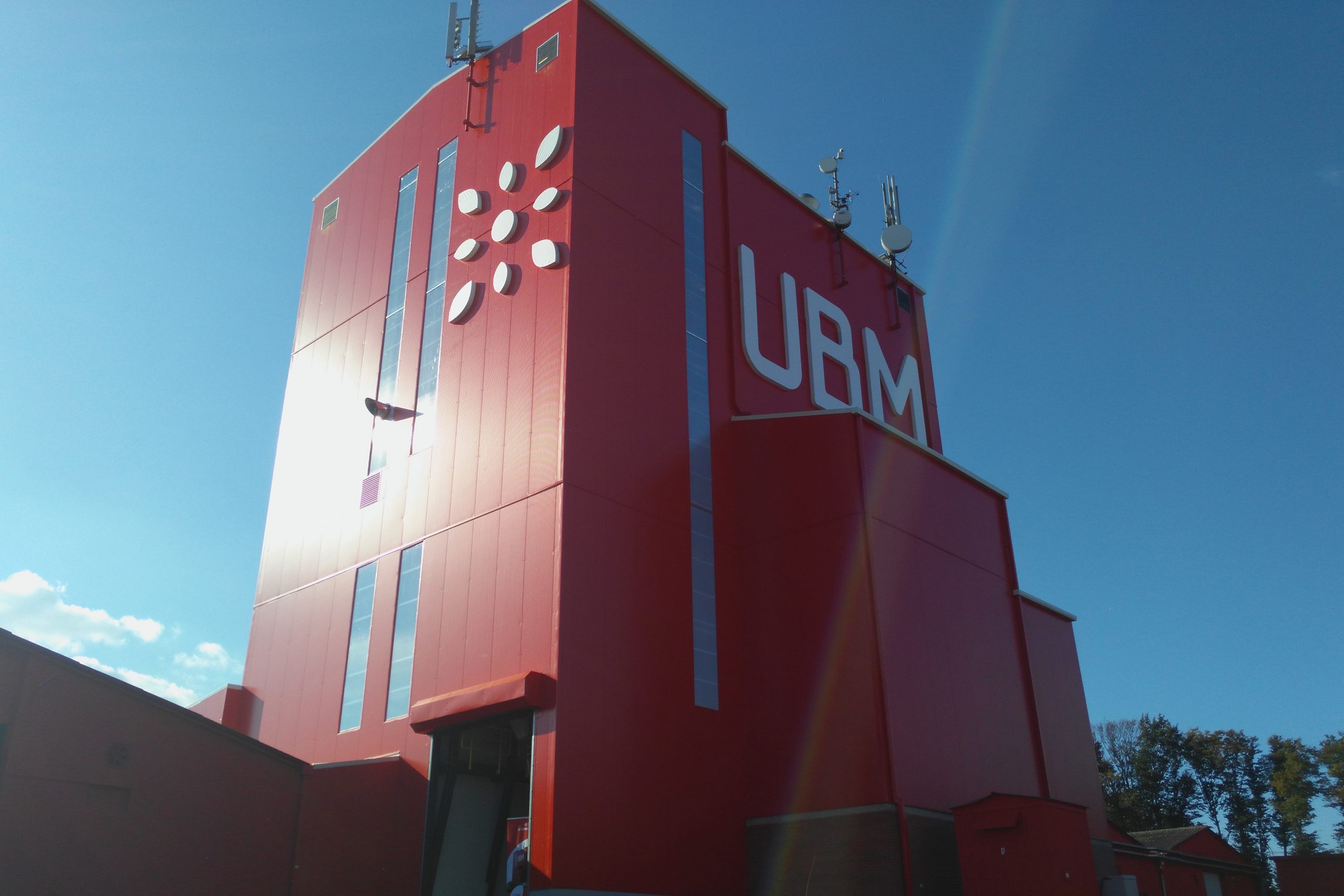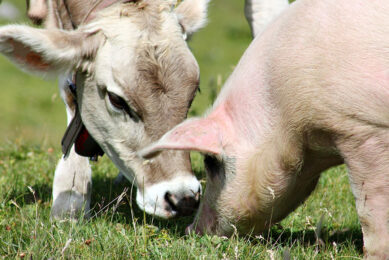UBM Feed aims to double feed production

The private Hungarian group UBM produces around 400,000 tonnes of feed per year. Through investments and further development, the company aims to double its feed production within five to six years. This is reason enough to catch up with Zoltán Pulay from UBM and Timea Pikó from the Hungarian Feed Association.
The Hungarian group UBM was established in 1996 as a sole importer of soybean meal from Argentina and Brazil. Today, the Hungarian company imports 200,000 tonnes per year. Since 1998, UBM also added cereals trade to its portfolio, representing 700,000 tonnes per year. “In 2009, we were able to make complete feed, as we imported not only soybean meal and cereals, but also sunflower and rapeseed meal, additives, phosphates, etc.” Up to now, our feed is produced in our Környe plant, under our own brand.
This was first done in partnership with an existing feed producer, but now we do this independently,” explains Pulay, UBM Feed purchasing director. UBM is particularly strong in pig products and is for example an exclusive distributor for the Hungarian feed market for Milkiwean, the pig feed brand of the Dutch group Trouw Nutrition and Hypor porcine genetics (Hendrix group).
A flow of investments
Since 2009, the UBM group has made several major investments, all aiming to become the first regional feed producer and feed ingredients trader. A first investment was made in 2012 in Szentes, situated in the southern part of the country, with the building of a feed plant with a capacity of 180,000 tonnes. This was done in partnership with poultry integrator Hungerit. In 2016, two other investments were done. A premix plant (12,000 tonnes/year) was built in Környe, 70 km west of Budapest. The plant was officially opened on 28 April 2016. Secondly, a compound feed plant (100,000 tonnes/year) was built in the western part of Hungary (Szeleste), which was also opened in April 2016. Part of the feed produced at the Szeleste plant is for a partner.

The Környe plant (5 tonnes/hour) has been built by Abraziv, a Hungarian company specialised in the building of feed plants. This feed mill has a staff of six and produces premixes. Due to all the investments made, the UBM group now has a total production capacity of 400,000 tonnes of feed, of which more than 60% is poultry feed and the rest is pig and cattle feed.

The Hungarian feed industry
The Hungarian Grain and Feed Association (founded in 1991) has around 100 members, of which are feed producers, millers, grain traders and a bank. Over the last 25 years, the Hungarian compound feed production dropped from 10 to around four million tonnes (Table 1). Most of the feed produced is for poultry, followed by pig and cattle feed. “The Hungarian compound feed sector has more than 300 production sites, although most of them are old and small scale production units,” explains Timea Pikó, secretary of the association. She further explains that UBM Feed, Agrifirm, Cargill, Bonafarm, Agrofeed and Vitafort, DSM (premix) are the main players on the Hungarian feed market. Pikó expects a further restructuring of the Hungarian feed sector. “We see that the smallest feed mills are forced to close due to a lack of production capacities and because they cannot comply with European requirements.”
Research and development
Besides investments, UBM also reorganised itself and now has different departments: purchasing and logistics, manufacturing, sales and marketing, formulation, administration, research and development. According to Pulay, one of the priorities of this new organisation is attracting new talent to the company. “We need highly skilled people as we want to offer our customers operational and complex nutritional solutions,” explains Pulay. This is why emphasis and involvement in research and development is very important. UBM has connections with many universities, both in Hungary, the US and Europe. “We also work with renowned independent consultants of the industry, in Europe and outside Europe,” he adds. The results of the research are in the form of practical innovations with direct field application. For example, UBM has successfully included whole wheat grains to poultry pellets (after the granulation phase), with positive effects on poultry performance and intestinal health. The Soypreme® (produced under licence of Borregaard) is an optimal source of protein and energy protected from rumen degradation and another example of innovation successfully launched by UBM Feed. The future is bright for UBM. They want to continue growing and form new partnerships in the future, in particular with existing Hungarian integrator groups.
Join 26,000+ subscribers
Subscribe to our newsletter to stay updated about all the need-to-know content in the feed sector, three times a week. Beheer
Beheer









 WP Admin
WP Admin  Bewerk bericht
Bewerk bericht